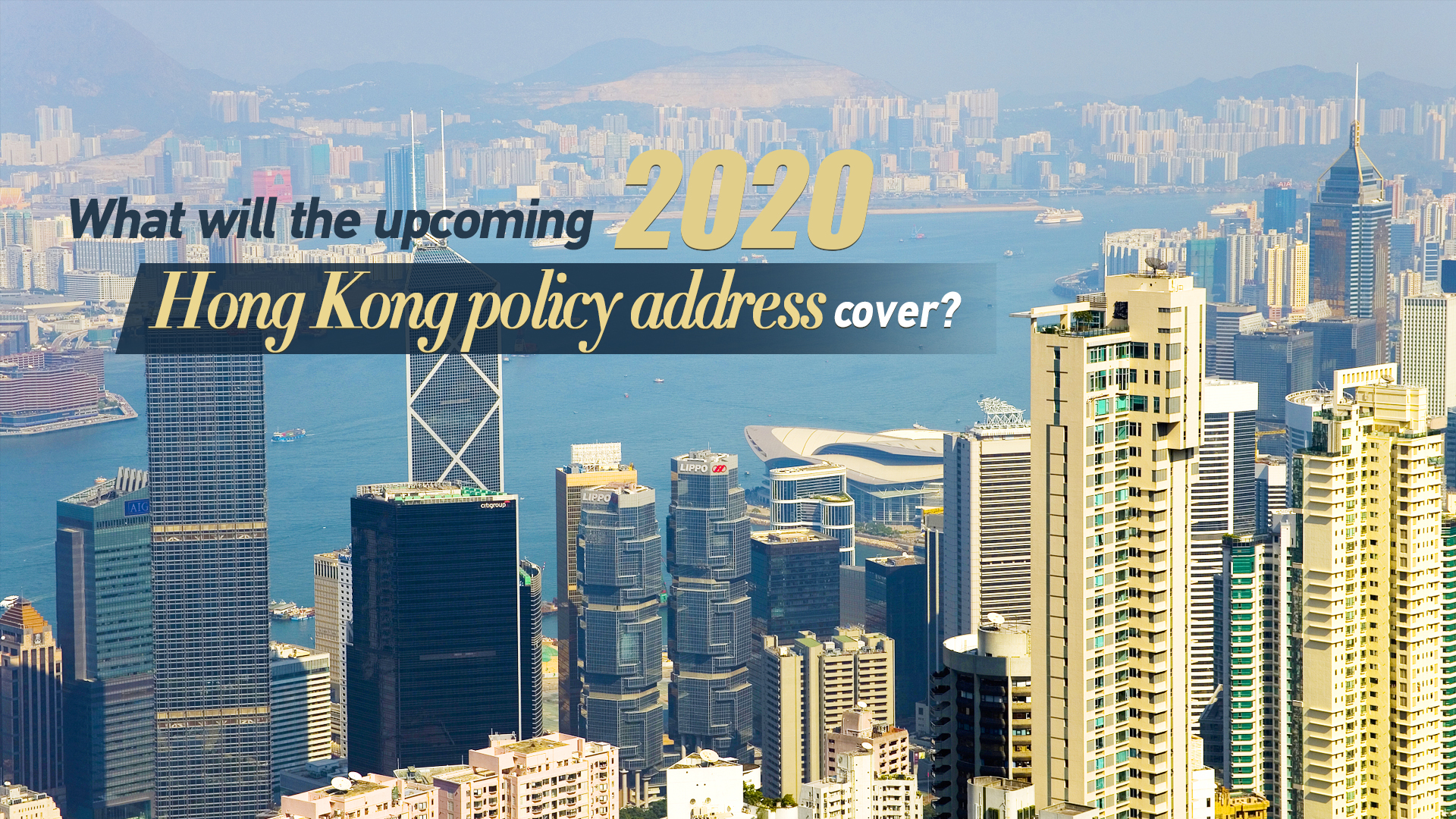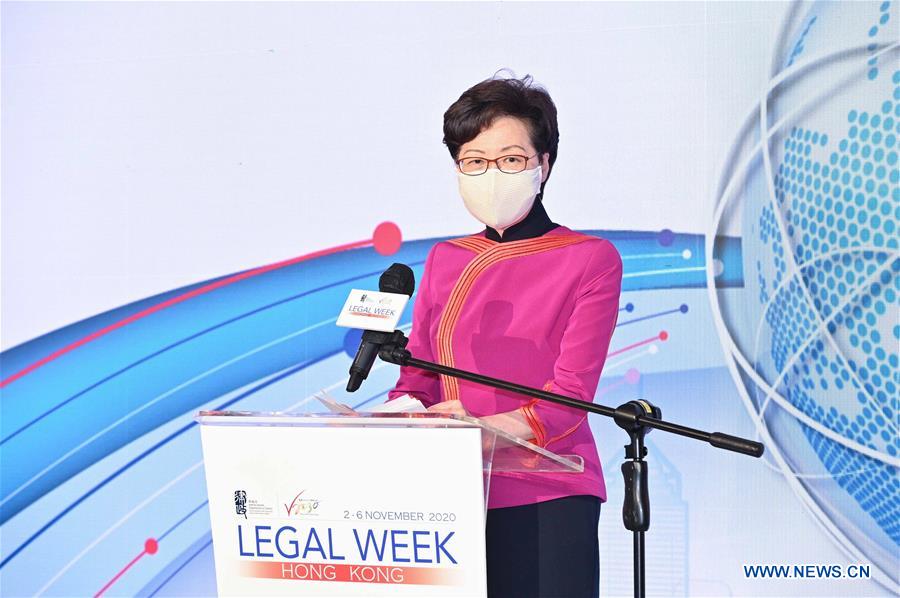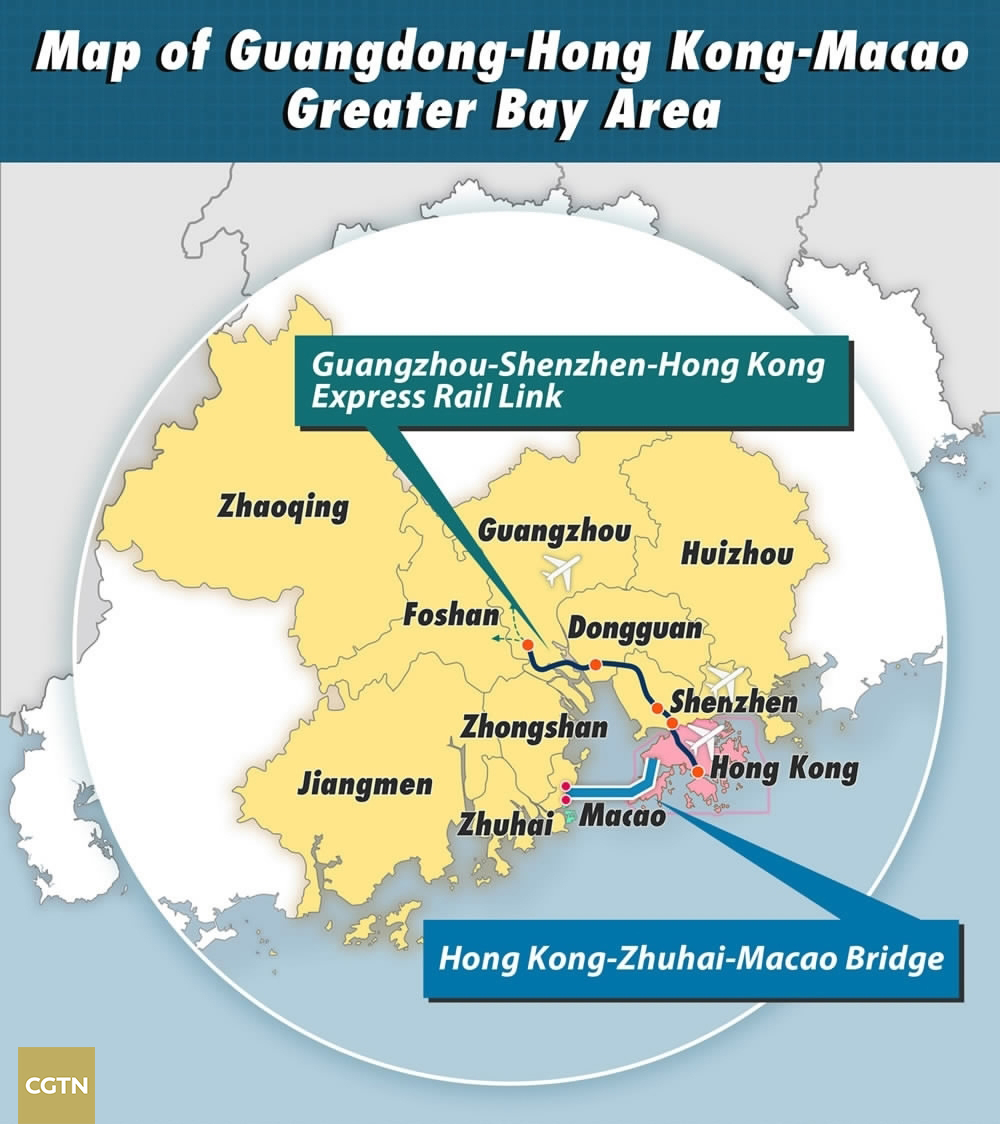02:05

All eyes will be on the chief executive of the Hong Kong Special Administrative Region (HKSAR) on November 25, when Carrie Lam delivers the annual policy address, to see how she will address the crises Hong Kong faces.
As required by the SAR's Basic Law, the chief executive delivers annual policy address to set out initiatives and policy directives for the year ahead.
Since last year, the on-and-off social unrest and the COVID-19 epidemic have put Hong Kong society in turmoil and harmed the economy of the international financial hub.
Official statistics show that Hong Kong's economy has contracted for five consecutive quarters. The unemployment rate for the August-October period reached 6.4 percent, the highest in nearly 16 years.
"Hong Kong has gone through a very, very difficult year with the social unrest, the COVID-19 epidemic, and also some international sanctions," said Lam as she announced the government's decision to postpone the address until November 25.
In last year's speech, she put national security as the top topic but also covered housing, land supply, social welfare, public health, transportation and economic development.

HKSAR Chief Executive Carrie Lam speaks at the opening of the Hong Kong Legal Week, Hong Kong, China, November 2, 2020. /Xinhua
HKSAR Chief Executive Carrie Lam speaks at the opening of the Hong Kong Legal Week, Hong Kong, China, November 2, 2020. /Xinhua
In this year's address, the chief executive is expected to reiterate the importance of the "One Country, Two Systems" principle and how the SAR will help safeguard national security.
Lam could reaffirm the government's support China's top legislature's adoption of the national security law for HKSAR earlier this year, and its decision on SAR Legislative Council (LegCo) members' qualification, adopted earlier this month.
Officials from both HKSAR and the central government have said that the national security legislation can ensure Hong Kong's long-term prosperity and stability, gradually putting it back on track to economic growth.
There could be more projects announced to promote the proper understanding and recognition of the rule of law at various levels in the society as Teresa Cheng, secretary for justice of the HKSAR government, said earlier this month.
Underscoring the significance of this year's policy address, Lam have said that she delayed the address out of considerations for including more supporting measures from the central government so that "Hong Kong people have more confidence that the economy will bounce back."
China's Vice Premier Han Zheng, also the head of the leading group on the construction of the Guangdong-Hong Kong-Macao Greater Bay Area, has told Lam during her visit to the mainland that the central government "fully supports any causes for the long-term prosperity and stability of Hong Kong and its people.”
Overviewing results of Lam's mainland visit and China's proposals for development goals and tasks for the next 15 years, how HKSAR's development plan can integrate with the national development plan is expected to a big part of the coming policy address.
The initiatives could be possibly related to opportunities brought by the Guangdong-Hong Kong-Macao Greater Bay Area and China's new "dual circulation" development paradigm with domestic circulation as the mainstay and domestic and international circulations reinforcing each other.

More specifically, this could cover how Hong Kong and the mainland could work to grow Hong Kong's financial and investment sector and provide more employment opportunities as well as convenience policies for Hong Kong residents working in the mainland.
During her stay in Beijing, Lam also met six ministers of the central government, including the minister of commerce, minister of science and technology, head of the national health commission and head of the civil aviation association.
Lam has said that the meeting details will be reflected in the policy address. Besides economy, the meetings with ministers imply that other possible areas of cooperation with the mainland could be science and technology, COVID-19 prevention and control as well as air transportation.
COVID-19 containment plans
Hong Kong's COVID-19 outbreak has been getting stable because of the cushioning effects of the concerted anti-COVID-19 prevention and control efforts by HKSAR and the mainland.
The central government has been assisting HKSAR in fighting the pandemic in terms of helping to launch a universal community testing program and building treatment centers, covering all the costs for the screenings, and sending a nucleic acid testing team consist of hundreds of medical staff.
During her mainland visit, Lam had expressed hope for the gradual resumption of the cross-border flow of people between the mainland and Hong Kong as soon as possible, an issue now becomes less promising as the region faced a rebound in COVID-19 cases. But it still could be included in the policy address.
Hong Kong has moved to strengthen social distancing measures in response to the fresh outbreak, which the chief executive describes as "fairly severe." However she strssed that the government is "resolved to curb the epidemic," cutting the transmission chains mainly through massive testing.
When in Beijing, Lam said that HKSAR has been constantly improving its capability in testing and tracing contacts of COVID-19 patients. It could be expected that more specific measures regarding these two aspects will be discussed in the policy address.

